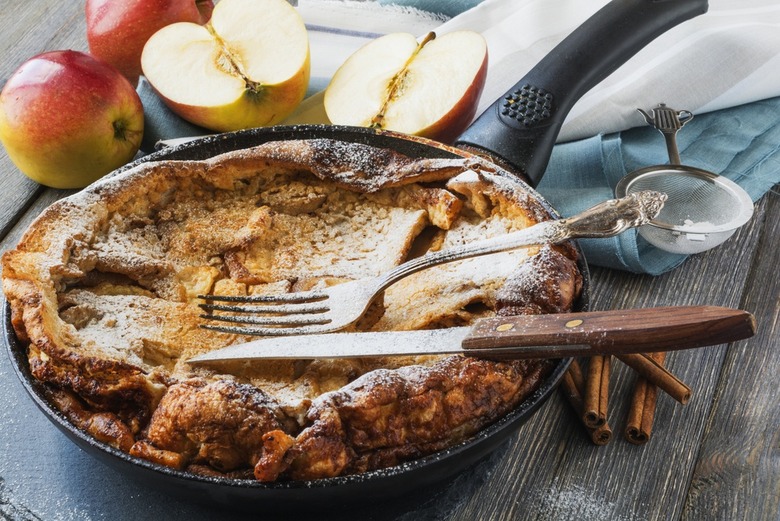5 Foods Named After Places They Aren't From
There are tons of food and drink items named after locations, often where they were first invented. However, as we previously showed with drinks, sometimes the name actually has nothing to do with where it comes from. The same is also true of some food dishes.
For a few, the origin story is a bit murky. Take the French, for example. There's a heated debate between France and Belgium regarding the source of fries, with both sides claiming credit. There's also French toast, which possibly came from France, but could have just as easily came from any number of European countries during the Middle Ages. On the far end of the spectrum, there's French dressing, which has little to nothing to do with France at all.
For this list, we looked at five foods with generally-accepted origin stories that prove food is about much more than whatever we choose to call it.
Baked Alaska
Baked Alaska is a dessert made from soft sponge cake topped off with a layer of hard ice cream and covered with a layer of uncooked meringue. This creation is then popped into the freezer until serving time, at which point it is placed in a very hot oven, just long enough to brown the meringue. Based on this description, you've probably realized the name is more of a description for the dish, and not a nod to its location. Baked Alaska actually comes from Delmonico's Steakhouse in New York City, where it was created in honor of the newly acquired territory of Alaska in 1876.
Chicken Kiev
While this dish is well known in Russian cuisine, and is also the national dish of the Ukraine (of which Kiev is the capital), its origins are actually more likely French — during the early 1900s French food was so popular across Russia that Empress Elizabeth sent dozens of her best chefs over to France to study it. One of the dishes brought back and adapted was cotelettes de volaille, a chicken dish with herbs and butter that is very similar to the chicken Kiev we know today. The dish gained popularity (and its name) when it was served after the two World Wars in Kiev to the delegation returning from Berlin.
Dutch Baby
A Dutch baby, also known as a German pancake, is a sweet popover made from eggs, flour, sugar, milk, and usually vanilla and cinnamon. It's basically a pancake so thick that you might mistake it for an actual cake. What it isn't, however, is a dish from the Netherlands. Germany probably gets a hearty assist on the play, but Dutch babies as we currently know them were allegedly introduced in the first half of the twentieth century at Manca's Cafe in Seattle, and was likely named after the Pennsylvania Dutch settlers. There was a version on the menu dating back to 1942, when the café owned the trademark for the term "Dutch Baby."
Jerusalem Artichoke
Not only is a Jerusalem artichoke not from Jerusalem, it isn't an artichoke either! It's a sunflower tuber (also called a sunroot or sunchoke) that is native to eastern North America, found everywhere from eastern Canada and Maine west to North Dakota, and as far south as northern Florida and Texas. Jerusalem artichokes have been cultivated since before the arrival of Europeans, with Native American tribes using them during trades with others in the region. The origin of the name? It either came from the Italian word for sunflower (girasole), or the newly-arriving Puritan settlers may have named it after the new world, which they often thought of as their "New Jerusalem."
Click here for a fantastic soup recipe using both Jerusalem artichokes and foie gras.
London Broil
The exact origin of the London broil is unknown, but we know two important facts about it. First, it did not come from London, or anywhere it England, for that matter. Second, it's a distinctly American invention. Often confused for a cut of steak, London broil actually refers to the preparation technique of taking a tough cut (of top round, chuck shoulder, flank, sirloin tip, etc.) and turning it tender. This is achieved by marinating the meat for several hours before slicing it into tender strips, cut across the grain.
